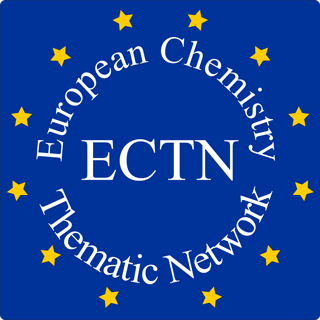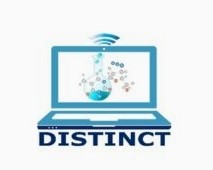Activities ELA
Webinars 2024
Three Webinars: Digital technology in STEM practical courses
Teaching and learning in laboratory courses, or any courses where students perform experiments, require designing active learning activities and engaging students in the learning process. Digital educational technology can be used in learning activities to support students’ learning and communication. In co-operation, the Working Group Eurolecturer Academy and the DISTINCT project, are organizing a series of three webinars where three different approaches will be presented on how digital technology can be used in a pedagogically relevant way to improve students’ learning.
Webinar 1
March 7, 2024, 9.30-10.30 (CET)
Richard de Boer and Charita Furumaya
Optimizing Practical Courses: Design Challenges, Educational Theories, and E-Learning Strategies for Enhanced Student Skills
Practical courses serve as optimal components within the curriculum for essential research and problem-solving skills. The challenge is to structure them effectively and efficiently. Students must come to the laboratory adequately prepared to achieve all the anticipated learning objectives in lab sessions. In the webinar, we’ll discuss course design challenges, talk about educational theories and showcase e-learning examples enhancing student learning experiences.
Richard de Boer (Faculty of Science, University of Amsterdam, The Netherlands)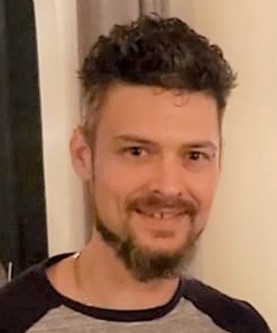 As a Life Sciences lector, Richard de Boer employs research-based learning in practical education. This involves replacing theoretical learning with real-world problems from the field. It promotes self-directed learning, critical thinking, and problem-solving, cultivates communication and collaboration skills, and encourages reflection and feedback to enhance skills and understanding. As a Life Sciences lector, Richard de Boer employs research-based learning in practical education. This involves replacing theoretical learning with real-world problems from the field. It promotes self-directed learning, critical thinking, and problem-solving, cultivates communication and collaboration skills, and encourages reflection and feedback to enhance skills and understanding. |
Charita Furumaya (LabBuddy, The Netherlands)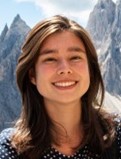 As a lab education consultant at LabBuddy, Charita Furumaya works together with teachers to enhance their practical courses by supporting them with e-learning. This ensures students arrive at the lab well prepared and understand what they are doing. As a lab education consultant at LabBuddy, Charita Furumaya works together with teachers to enhance their practical courses by supporting them with e-learning. This ensures students arrive at the lab well prepared and understand what they are doing. |
Webinar 2
April 18, 2024, 9.30-10.30 (CEST)
Alexandra Yeung
Using Electronic Notebooks in teaching and research
Electronic Laboratory Notebooks (ELNs) have recently gained popularity in academia and industry while paper laboratory notebooks (PLNs) are becoming obsolete from the digital world. This is due to many benefits of ELNs such as efficiency, accessibility, and data integrity. In response to changes to industry practice, ELNs have been implemented to help students develop skills that are easily transferrable and prepare them for a technological rich workplace. This webinar will provide insights into students’ and teaching staff’ experiences with using ELNs, particularly LabArchives.
Alexandra Yeung is currently a senior lecturer and the Chemistry Major Coordinator in the School of 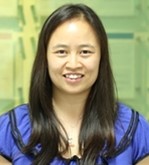 Molecular and Life Sciences at Curtin University, Perth, Australia. Alexandra’s research area is chemistry education, or more broadly science education. Her broad aim is to improve students’ perceptions of chemistry as well as their understanding of chemistry, particularly in a blended learning environment and through science inquiry activities. This is achieved by investigating how students learn chemistry, ways to foster student engagement and ways to improve their learning. Molecular and Life Sciences at Curtin University, Perth, Australia. Alexandra’s research area is chemistry education, or more broadly science education. Her broad aim is to improve students’ perceptions of chemistry as well as their understanding of chemistry, particularly in a blended learning environment and through science inquiry activities. This is achieved by investigating how students learn chemistry, ways to foster student engagement and ways to improve their learning. |
Webinar 3
May 23, 2024, 9.30-10.30 (CEST)
Bartosz Trzewik
Revitalizing Chemical Laboratories: Leveraging Remote Materials in a Post-Pandemic World
As the world transitions beyond the pandemic era, the landscape of education and laboratory practices continues to evolve. We will delve into innovative ways in which remote materials such as movies, quizzes, and online resources can be repurposed to enhance traditional chemical laboratories in normal situations, creating a dynamic and efficient learning experience. Our expert panel will share practical tips, case studies, and best practices for educators, offering a roadmap to maximize the potential of remote resources while maintaining the authenticity of in-person laboratory instruction.
Bartosz Trzewik is a senior lecturer at Department of Organic Chemistry, Faculty of Chemistry of J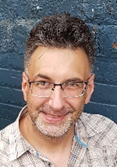 agiellonian University in Kraków, Poland. His scientific interest focuses on the synthesis of heterocyclic compounds. He conducts organic chemistry classes, mostly in laboratory, for students of chemistry and related fields at basic and advanced levels. His current research topic concerns the development of teaching competences of STEM lecturers, with particular emphasis on the use of MOOCs in this process. agiellonian University in Kraków, Poland. His scientific interest focuses on the synthesis of heterocyclic compounds. He conducts organic chemistry classes, mostly in laboratory, for students of chemistry and related fields at basic and advanced levels. His current research topic concerns the development of teaching competences of STEM lecturers, with particular emphasis on the use of MOOCs in this process. |
________________________________________________________

Disclaimer: The European Commission’s support for the production of this publication does not constitute an endorsement of the contents, which reflect the views only of the authors, and the Commission cannot be held responsible for any use which may be made of the information contained therein.
